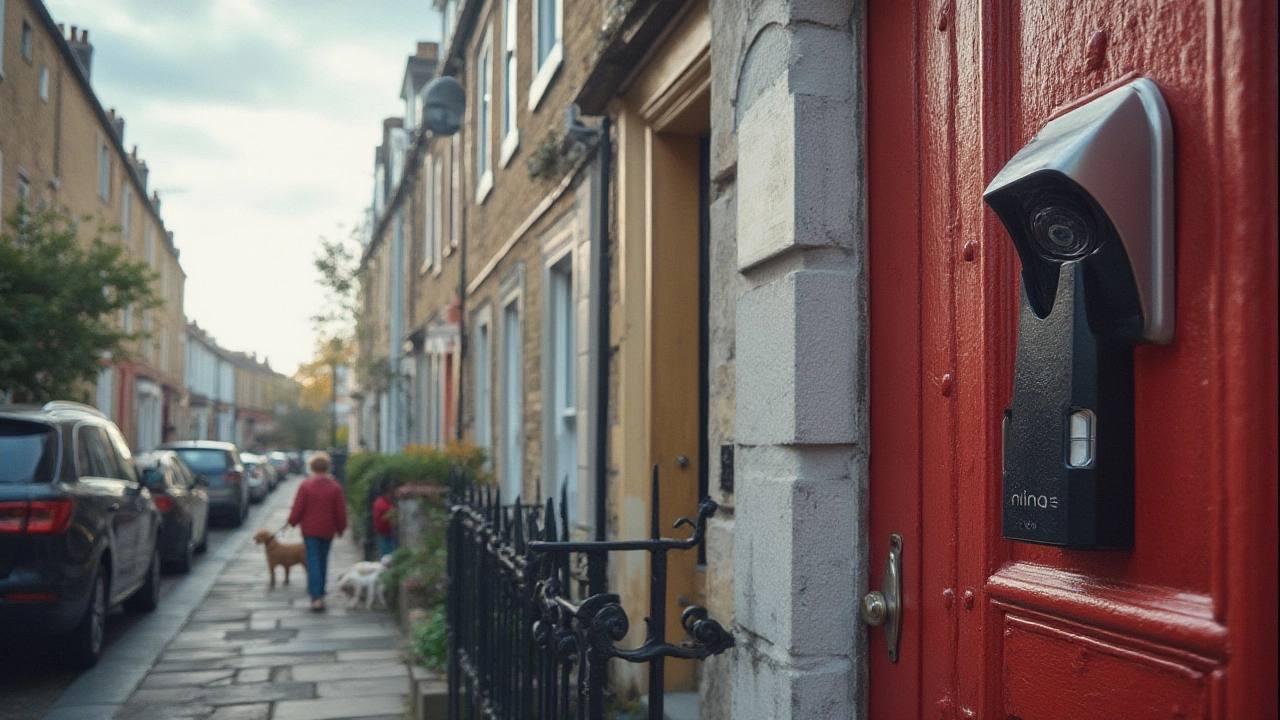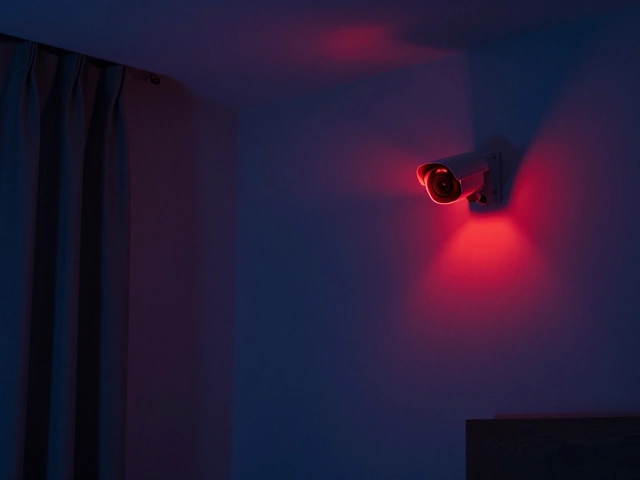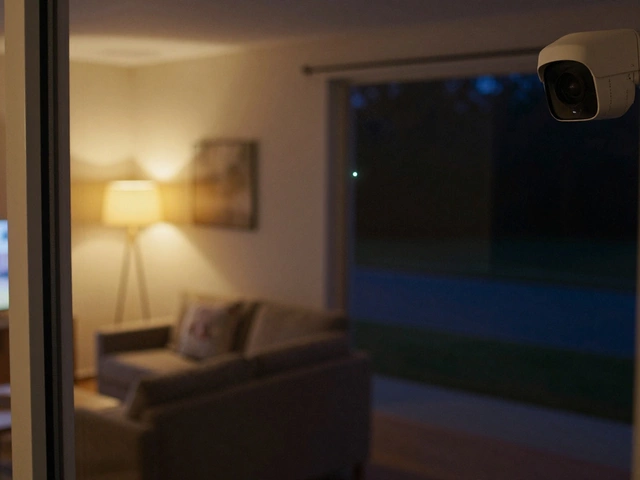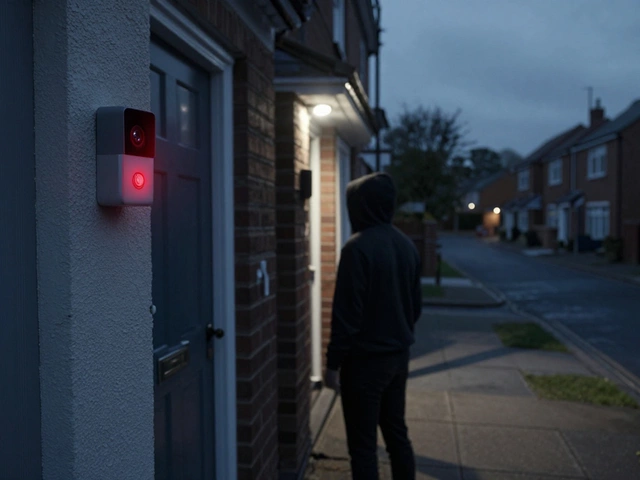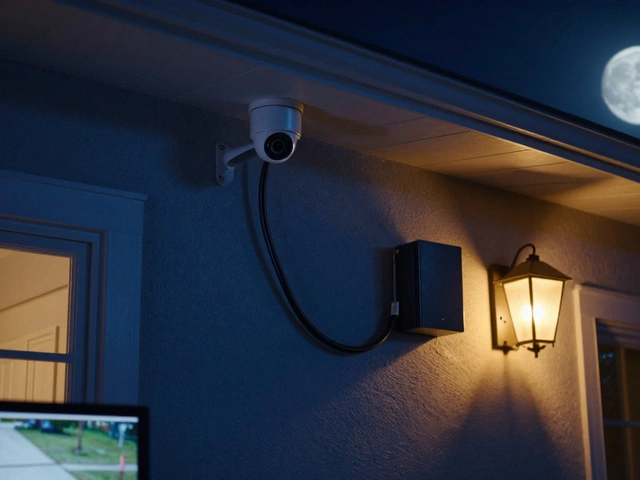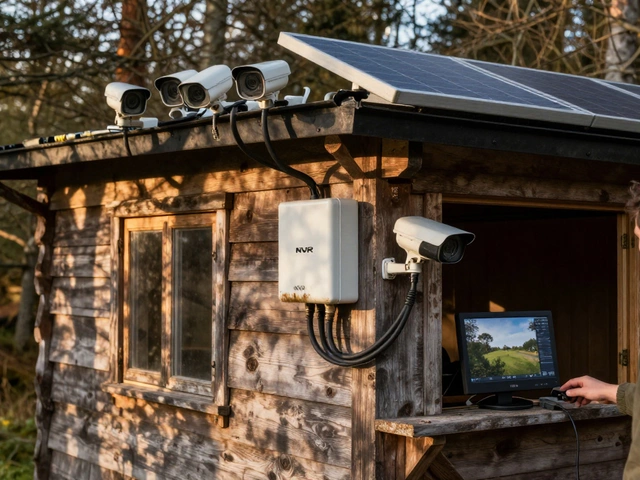Think of your last stroll down a typical British street. The odds are pretty good that you passed at least one tiny camera lens hiding behind a glowing blue halo—the unmistakable look of a Ring doorbell. These smart gadgets have landed everywhere, from city flats to sleepy village cottages. It's not rare to spot a whole row of them blinking on someone’s porch after dark. But just how many UK homes have actually joined the Ring revolution? Get ready for some eye-openers and a wade through the numbers—mixed with the weirdly social side effects of all those digital doorkeepers.
How Many People In The UK Have Ring Doorbells?
If you're scouring for a hard number, let's cut through the fog: By mid-2025, estimates based on sales data, industry analyses, and recent consumer surveys suggest that somewhere between 2.7 and 3.3 million Ring doorbells are installed across UK homes. Amazon, Ring’s parent company, doesn’t dish out exact sales figures by country. However, according to the Financial Times (June 2025), Ring devices accounted for about 74% of all video doorbells sold in the UK. When you look closer at market research from Statista and Mintel, the UK’s video doorbell market hit around 4 million active devices this year, with Ring clearly hogging most of the limelight.
So, what does that mean for the big picture? There are just under 28 million households in the UK. This means about 10-12% of homes have a Ring doorbell perched outside their front doors—not counting the rival brands like Nest or Eufy. That’s a massive leap from only a few years back. The pandemic, of all things, gave Ring a turbo boost. With more people working from home, worrying about doorstep parcel pirates, or just keen to see who’s calling without leaving the sofa, it’s no wonder. If you take a walk in Greater London, Manchester, or Birmingham, you’ll find Ring’s popularity climbs even higher—they're quickly becoming the new normal in city suburbs and busy residential streets.
Let’s break it down with some numbers in an easy-to-digest format:
| Year | Estimated Ring Doorbells Sold in UK (Million) | Percentage of UK Households |
|---|---|---|
| 2019 | 0.8 | ~3% |
| 2022 | 2.0 | ~7% |
| 2025 (est) | 3.0 | ~11% |
Ring doorbells aren’t just for tech-heads or gadget junkies anymore. People in their seventies are picking them up for peace of mind. Landlords fit them for tenants, and families like being able to keep an eye out for new delivery drivers. One WhatsApp group in Essex even joked about setting up a bingo night where neighbours checked who had caught the weirdest doorstep moment. If you hop into any local Facebook group, you’ll spot Ring footage shared if someone’s dog gets loose or if a mysterious stranger wanders past three different porches at 2am. Yes, these things are everywhere—and almost expected.
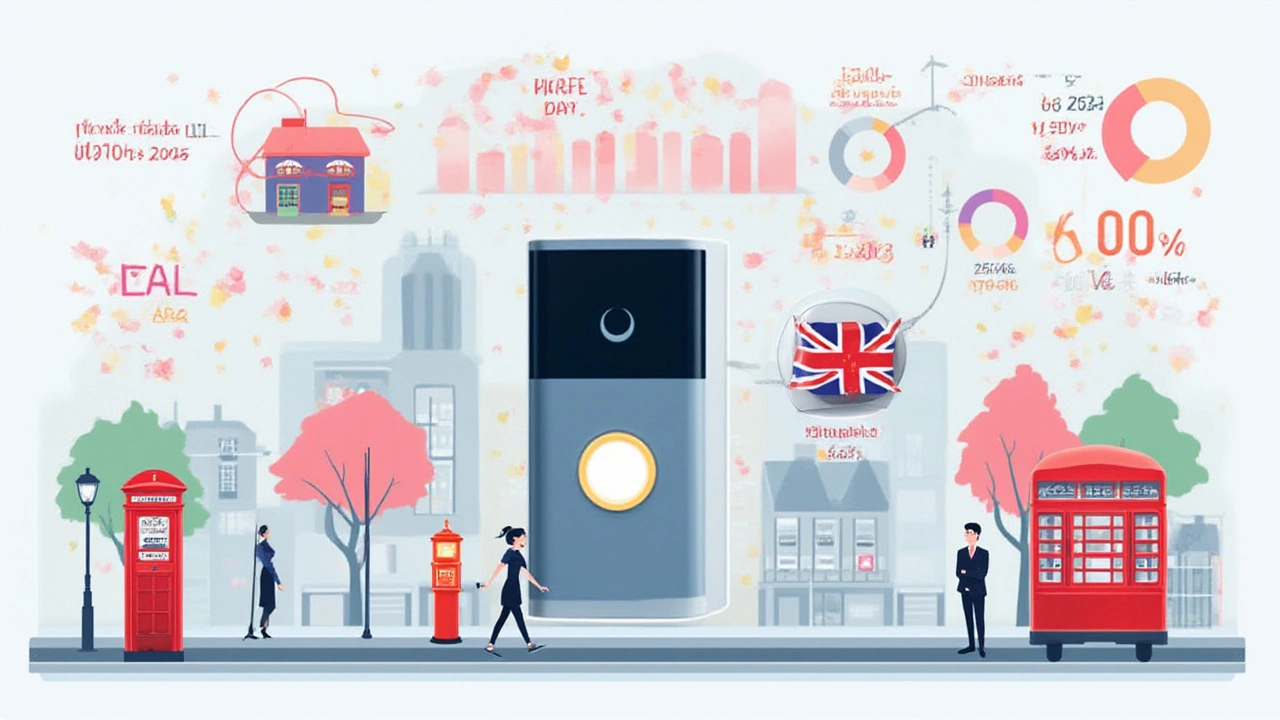
What’s Driving The Ring Doorbell Boom?
Loads of factors go into this sudden popularity spike. For starters, the unpredictable rise in doorstep deliveries—Amazon and eBay sellers are busier than ever—has people worrying about missing parcels or thefts. Royal Mail admitted in late 2024 that package-related complaints jumped over 18% in the past five years, and people want more control over who comes knocking. The cost of Ring doorbells has also fallen: basic models are now under £60, with higher-end versions just above a hundred quid. Not that long ago, smart home tech was a luxury; these days, it’s cheaper than some Saturday takeaways for a family.
Let’s not forget how these gadgets tap into something very British: the urge for a bit of quiet neighbourhood surveillance. You can check who’s at the door without peeking through wrinkled curtains or opening up to strangers. Privacy paradox incoming—most folks love the idea of seeing out, but are less sure about being seen by hundreds of their neighbours’ cameras. Still, the appeal is heavy: Ring offers motion alerts, two-way talk, and crystal-clear video—sometimes even in colour at night. Alexa integration means you can get announcements wherever there’s a smart speaker hiding in the house.
The buzz really gets going when you look at the way these things have changed street life. Local police forces in some cities openly admit that community-shared Ring footage helps with burglary investigations, leading to higher ID rates for suspects. In Leeds, there was a spate of “doorbell flash mobs” last Halloween—Ring owners swapped clips of kids in costume, which ended up winning a mention on local radio. There’s a social side to Ring that no one really expected when the gadgets first landed. It’s like opening a virtual window into your bit of the world and sharing whatever happens to wander by.
Some practical tips if you’re thinking of being the next to join in:
- Pick a camera angle that covers your drive or garden gate, not just the front door—this gives you more useful footage if you need it.
- If you want to save videos for more than a day or two, you’ll need a Ring Protect subscription plan. It runs from about £3.49/month; worth it for peace of mind.
- Mind where you point the lens: you’re skating close to privacy headaches if your camera covers someone else’s property or a public pavement. The ICO has handed out warnings.
- Set up notifications only from key zones unless you like getting pinged every time a fox wanders past at 4am.
- Check your Wi-Fi speed before buying—the video needs a reliable connection or it’ll look like an old TV broadcast on a stormy night.
- Share clips carefully. If you’re posting on social media, blur out faces or car plates that aren’t yours before you share anything public.
If you want your Ring doorbell to last, don’t forget to update the firmware whenever there’s a prompt. Most security breaches happen because people ignore those updates. British weather is no joke either, so if your door frame faces the brunt of wind and rain, look at a waterproof shield or housing.
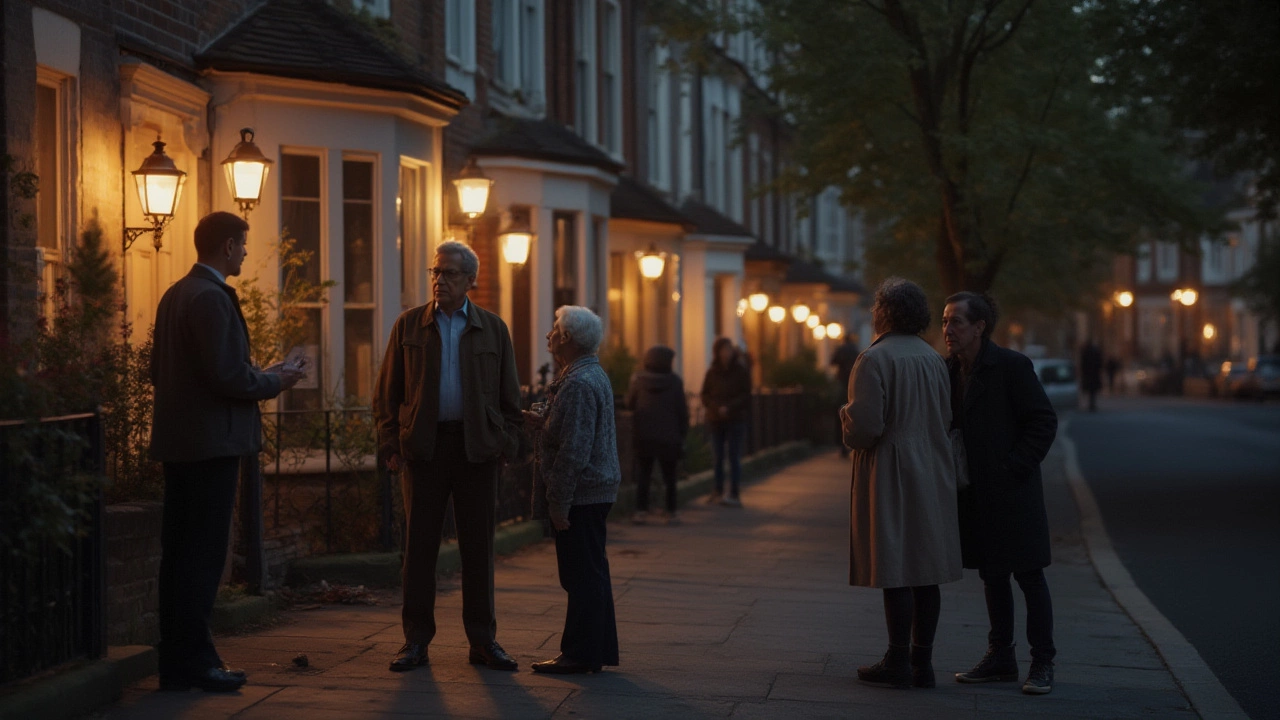
The Impact: What Ring Doorbells Mean For UK Streets And Beyond
Now let’s get real—life with millions of Ring doorbells changes the way things feel around the neighbourhood. You don’t just answer the door; now, you might get an alert from your phone at work, watching the postie wave before he leaves a parcel behind a bin. The local Neighbourhood Watch organiser uses Ring footage to help the police solve everything from garden tool theft to missing cats. Some streets feel safer but also less private: two in five people now think their walk to the shops is being recorded. Your friendly guy from down the road might have five different camera perspectives of you picking up your paper.
Crime solved? Sort of. The Metropolitan Police revealed earlier this year that public uploads from Ring devices helped solve or provide evidence in 8% of property-related cases they handled in 2024. But it’s not all plain sailing—there have been some sticky privacy rows. Back in 2023, a judge ruled in favour of a woman in Oxford who argued her neighbour’s Ring camera was covering her private back garden. It raised the issue: where’s the line between feeling safe and snooping?
Still, you can’t ignore the raw convenience. People with Ring doorbells report feeling a little more relaxed about late deliveries, or letting kids answer the door alone. A study by YouGov from March 2025 showed that 78% of UK Ring users believed their device made their home more secure, while 64% admitted they used the playback feature simply to avoid seeing door-to-door salespeople. One bloke in Liverpool even shared that he checks if it's his mother-in-law at the door, giving him precious seconds to tidy up before letting her in.
Businesses have jumped in too. Small shops use Ring to monitor after-hours visits, and some blocks of flats have communal Ring setups so that residents don’t have to run down three flights of stairs just to check who’s buzzing. Even delivery drivers have started to develop a sense for which homes have live cameras and which don’t—some even wave or smile just in case the homeowner is watching.
Looking ahead, it seems unlikely that the smart doorbell trend will slow down. Experts at ABI Research predict the UK market for smart doorbells—led strongly by Ring—will pass 5 million devices by the end of 2027. That’s one in six homes with a digital doorman, keeping an eye out. With more advanced features like parcel detection and AI-powered package warning coming soon, don’t expect to see fewer blue halos anytime soon. Ring doorbells are stitched into the fabric of modern British life, for better or for worse.

